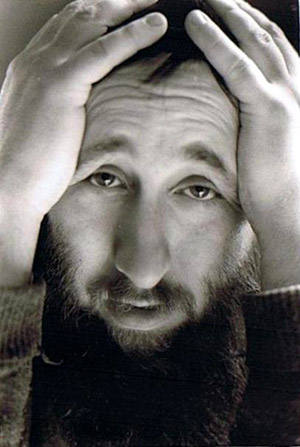
From slavery to liberation, the story of the Exodus, as told every Passover seder, is a swashbuckling tale of a few individuals who became a family and, in turn, became a people. The Haggadah, the book from which we read during the seder, values questions as much as answers. But if you find yourself making any of the following 10 faux pas, “When do we eat?” could soon become “When do we leave?”
1. Don’t ask your host if you can chug the leftover glass of wine in the middle of the table. During the Passover seder, it’s customary to drink four cups of wine (or grape juice, if you’re under 21 or just a bit more inhibited). According to custom, we also pour a fifth cup, the “Cup of Elijah,” and reserve it in honor of the prophet who comes to visit every seder. Control your inner oenophile and refrain from sipping from Elijah’s glass. And whatever you do, don’t ask what time the prophet is coming down the chimney. (Helpful hint: He actually comes through the front door.) The good news is that kosher wine is no longer a Passover fad—all the cool kids are drinking it.
2. Don’t be a stranger…and don’t invite someone strange. The Haggadah notes, “Let all who are hungry, come and eat.” The welcoming of guests to the seder table is a central Passover tradition, originating from the biblical story of Abraham and Sarah, who opened their tent to strangers. Translation? It’s customary to invite a guest to the Passover seder, so keep your door open, but not so open that a stray Mel Gibson may wander in. Mel’s not exactly on this rabbi’s Mensch VIP list.
3. Stop continuously asking, “When are the latkes going to be served?” …Or for that matter, the blintzes, knishes, or even egg rolls. Perhaps the question most often uttered at a seder is, “When do we eat?” Seders can go on for hours, but if you stick it out, you’ll enjoy a festive meal that teaches us that true freedom lies not in fleeing from the world (or the seder table, if we get restless) but in enjoying its (culinary) riches. The humble fare on the seder plate may not merit a Michelin star, but each food is symbolic of the Exodus experience. The plate features a hard-boiled egg, a roasted shank bone, a spring vegetable such as parsley, horseradish, lettuce, and a special paste consisting of a mixture of fruit, wine, and nuts that’s known as charoset.
4. No seder status updates, please. You might be able to communicate in 140 characters or less, but at the seder table, we make Hebrew our second language. No texting, tweeting, Friending (or un-Friending), Liking, or, you guessed it, Poking is allowed. In order to return to the Egypt of old, if only for one evening, we must break from some of our modern habits. The core of the seder is retelling the story of the Exodus from Egypt, and Moses led the Jewish people to the Promised Land without using a GPS-enabled smartphone. (Never mind the fact it took him 40 years.…)
5. A reference to the “four children” is not a reference to the Kardashians.
The Haggadah speaks of “four children”: one who is wise, one who is wicked, one who is simple, and one who does not know how to stay married ask. Each of these children asks a question about the seder in his own way, and in each case, the questions must be answered differently, because the form of the question typifies the character and attitude of the inquirer. These four children can also be seen as archetypes, each having one characteristic that we all possess, such as the know-how to make $17 million off our weddings.
6. Refrain from asking to read the part of Charlton Heston. If you find yourself reading dialogue from a movie, you brought the wrong Haggadah. That said, among many families the mandatory rewatching of the classic 1956 Academy Award–winning film The Ten Commandments, starring (the very non-Jewish) Charlton Heston as Moses, is a time-honored Passover tradition. In fact, a great way to spice up the seder is with role-playing, with guests putting themselves in the shoes of our ancestors. So don’t be afraid to put on that pharaoh costume and walk like an Egyptian.


 Pinterest
Pinterest


